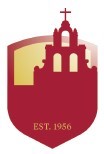Topic 5-02-7 – Conduct/Citizenship Grades
In order to develop a sense of Christian morality and live the mission of Bishop Alemany High School, all students, staff, and faculty are expected to demonstrate in daily living, on and off campus, those moral virtues encompassed in the Gospel of Jesus Christ. To facilitate this commitment, the Bishop Alemany community recognizes that this campus-wide honor policy is desirable. We believe that students have a duty to be truthful and just. Therefore:
- All students at Bishop Alemany, as members of a Christian community, are expected to conduct themselves courteously in their relations with teachers, staff members, visitors, and each other. This applies not only during school hours and on school grounds, but also at all school activities, such as athletic contests and dances.
- Students should always conduct themselves in speech, manner, and dress that reflect a commitment to Christian morality and Christian charity, on or off campus, at all times.
- Students are to refrain from vulgar, obscene, suggestive, or insulting expressions, overt demonstrations of disapproval, and all other behavior disruptive to the classroom situation.
- Students are not to argue about tests, grades, and punishments during class, but rather contact the teacher after class or at the end of the school day to resolve such difficulties in a respectful manner.
- Students are not allowed to use stylized graffiti writing on any assignments or tests. No credit will be given for any assignment of a test written in this fashion.
- Students are also required to treat school property with respect by not defacing it in any way and by making proper use of waste containers.
- Cheating, dishonesty, and falsification of records are included under “immoral conduct":
- (1) A student submitting work for credit under his/her name must have personally completed the work. Using unauthorized materials or advanced information is not being truthful.
- (2) A student taking a quiz or test must follow the individual teacher's instructions.
- (3) A student's communication and interaction with others must be honest and considerate.
- (4) Plagiarism is presenting another person's ideas, research, generated work or writing as your own, such as (but not limited to):
- (a) Copying another person's actual words without the use of quotation marks and footnotes (functional limit is four or more words taken from the work of another).
- (b) Presenting another person's ideas or theories in your own words without acknowledging them.
- (c) Using information that is not considered common knowledge without acknowledging the source.
- (d) Failure to acknowledge collaborators on homework and laboratory assignments.
- (e) The unauthorized use of AI platforms and/or submitting generated work as your own. NOTE: Bishop Alemany uses Turnitin to check for plagiarism and AI-generated work through Canvas.

